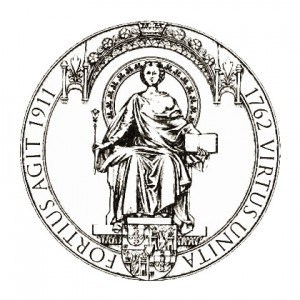Photos of university / #uoftmississauga
Astronomy, of all the sciences, is perhaps the most wide-ranging in its content and in its implications. It embraces such topics as the origin and evolution of the planets, stars, galaxies and the whole universe; the conditions for the origin of life on earth and elsewhere; the behaviour of matter in environments never experienced on earth, and in general, the influence of the universe on mankind's thinking down through the ages. Because of its breadth, it has always formed a valuable part of a general education.
Astronomy offers courses that could be of interest to every student at U of T Mississauga. Four of these are introductory courses: AST101H5, 110H5, 201H5, 252H5.
AST101H5 and AST201H5 are both intended for students from outside the sciences, while AST 110H5 and AST252H5 are designed for students who have some background in science.
- AST101H5 introduces students to the historical background of astronomy and continues through to the modern discoveries about the solar system and the development of modern telescopes and observatories, both on the ground and in space.
- AST110H5 provides an introduction to observing and analysis.
- AST201H5 surveys the structure and evolution of the stars, galaxies, and the universe as a whole.
- AST252H5 is a unique interdisciplinary course that examines the broad topics of the origin and evolution of the universe, galaxies, stars, planets, and life. This course is intended for students who have some background in the sciences.
| First Year | AST110H5; MAT102H5, 135Y5/137Y5/157Y5, 223H5/240H5; (PHY136H5,137H5)/(146H5,147H5) |
| Second Year | AST221H1(G), 222H1(G); MAT244H5, 232H5/233H5, 236H5; PHY241H5, PHY242H5/JCP221H5, PHY245H5 |
| Third Year | AST320H1(G); JCP321H5; JCP322H5/one 300/400-level half-course approved by the faculty advisor. |
- Attestat o Srednem (Polnom) Obshchem Obrazovanii
- Official and complete transcripts for your secondary school studies and notarized English translations of all documents issued in a language other than English or French are required.
- IELTS The minimum requirement is an overall band of 6.5, with no band below 6.0.
- TOEFL Internet-based Test: total score of 100 + 22 on Writing; Paper-based Test:total score of 600 + 5.0 on TWE
The University of Toronto offers a comprehensive range of financing options for students enrolled in the Astronomy undergraduate program. Prospective students are encouraged to explore multiple sources of funding to support their academic pursuits. The university provides various scholarships, bursaries, and awards based on merit, financial need, and specific criteria such as academic achievement, leadership, or community involvement. The Astronomy program students can be considered for entrance scholarships, which are awarded automatically upon admission based on high academic performance in their previous studies. Additionally, the university offers departmental awards that recognize excellence in astronomy coursework and research activities.
Financial aid packages may also include government-sponsored loans and grants for Canadian citizens and permanent residents, such as the Canada Student Loans Program and provincial aid programs. International students, meanwhile, can access certain scholarships and financial awards, although they are generally more limited and competitive. The university encourages students to apply early for financial aid, as many awards are distributed on a first-come, first-served basis. Furthermore, students are advised to explore external funding opportunities, including private scholarships, foundations, and research grants related to astronomy and space sciences.
Graduate students in the Astronomy program may have additional funding options available, such as research assistantships, teaching assistantships, and fellowships. These positions often provide stipends to support students during their research and coursework. The university's Office of Student Financial Services and the Faculty of Arts and Science provide detailed guidance and application assistance for various funding sources. Students are advised to consult the University of Toronto's official financial aid website and contact respective departments for the most current and specific information regarding financing studies for the Astronomy program. Overall, the university is committed to making education accessible and affordable, with numerous resources aimed at minimizing financial barriers to obtaining an astronomy education.
The University of Toronto offers a comprehensive Astronomy program designed to provide students with a solid foundation in understanding the universe, celestial phenomena, and the physical laws governing space. This program is suitable for students interested in pursuing careers in astrophysics, research, or science communication. The curriculum combines theoretical coursework with practical observational skills, enabling students to analyze data, conduct research projects, and gain hands-on experience with modern astronomical instruments. Students have access to state-of-the-art telescopes and laboratories, fostering a practical understanding of astronomical observations and data analysis. The program also emphasizes the development of critical thinking, problem-solving, and quantitative skills necessary for a career in scientific research. Students can explore diverse topics such as cosmology, planetary science, stellar evolution, and instrumentation. The University of Toronto encourages undergraduate research opportunities, allowing students to work alongside renowned faculty members on cutting-edge projects. Additionally, the program offers various seminars, workshops, and guest lectures by experts in the field, providing insights into current challenges and advancements in astronomy. Graduates of the program are well-prepared for employment in research institutions, observatories, space agencies, or further graduate studies in astrophysics or related fields. The program's flexible structure also allows students to combine astronomy with other disciplines, including physics and mathematics, to tailor their academic experience according to their career goals. Overall, the University of Toronto's Astronomy program is committed to fostering scientific curiosity, analytical skills, and a deep understanding of the universe, making it a leading choice for aspiring astronomers.









